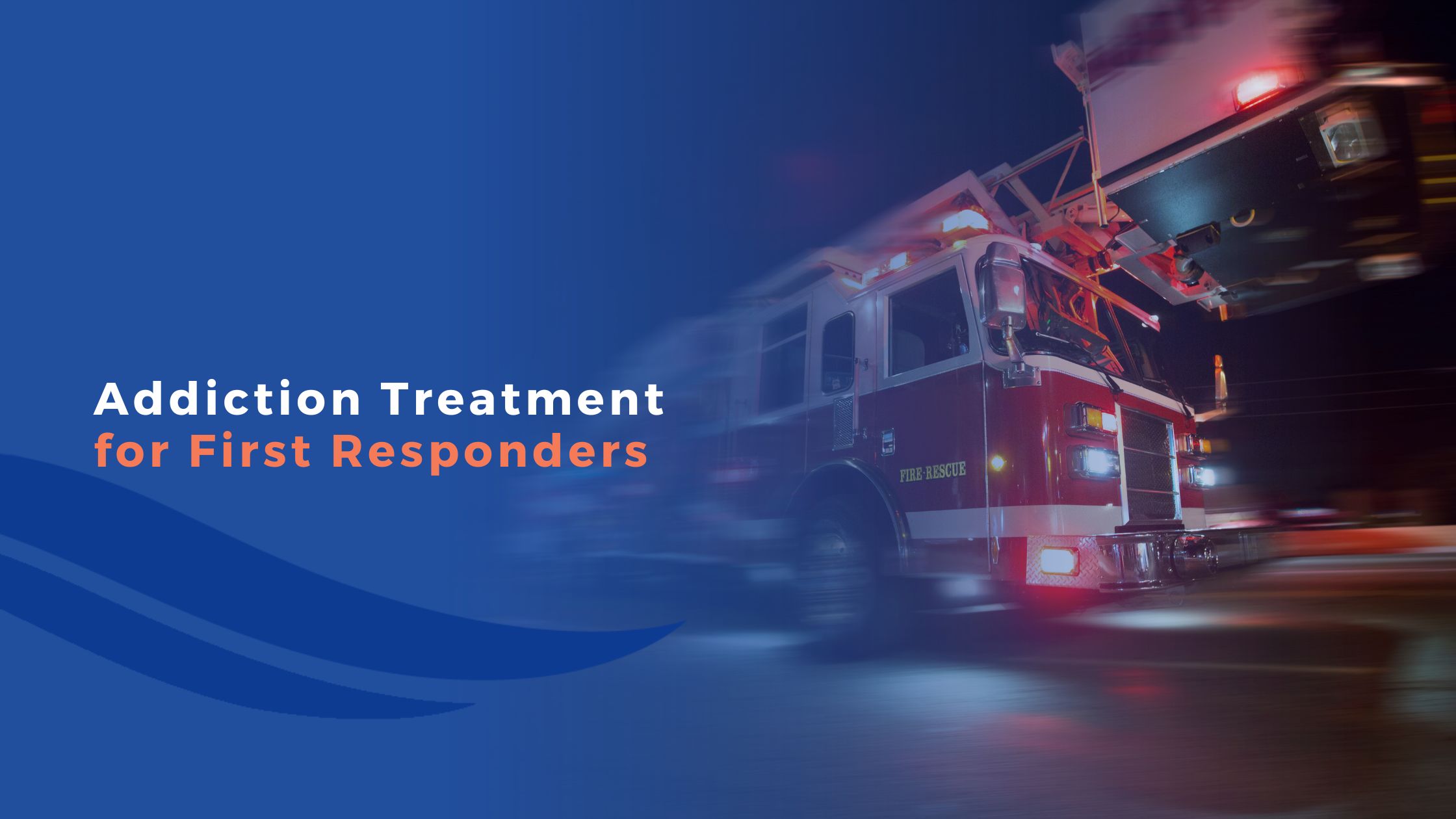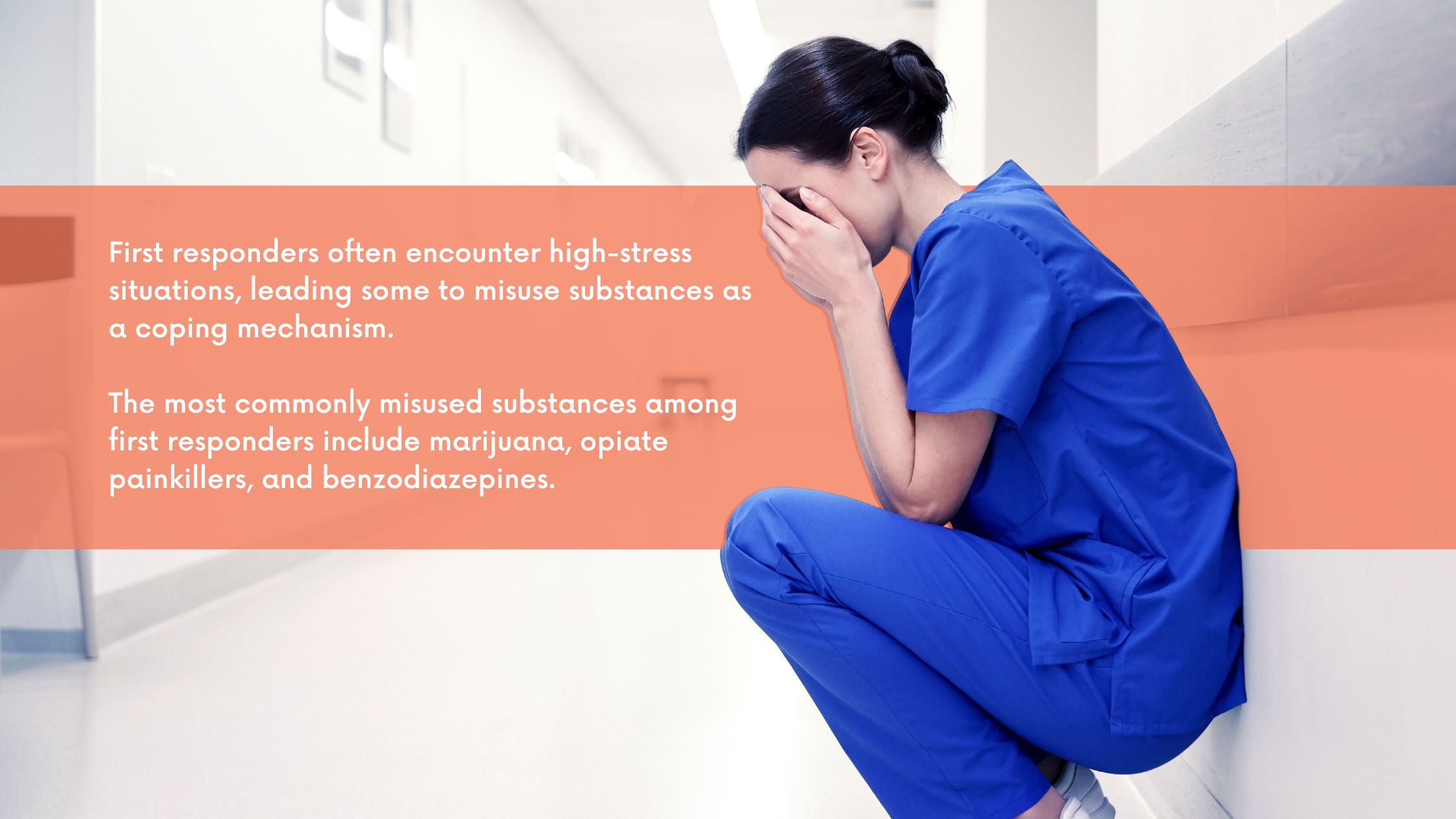Addiction Treatment for First Responders


Written By
DreamLife RecoveryFirst responders, including firefighters, police officers, EMTs, and paramedics, face unique challenges that can make them more susceptible to addiction. High-stress situations, exposure to trauma, and long, irregular work hours contribute to increased rates of substance misuse and mental health disorders.
Unfortunately, the stigma associated with seeking help within these professions often leads to untreated addiction.
Given these particular circumstances, it is crucial that first responders have access to specialized addiction treatment programs. Such programs understand the specific stressors first responders face and offer tailored strategies to promote recovery.
This approach is key to helping our frontline heroes overcome addiction and return to their vital roles in our communities.
This article sheds light on the often-overlooked issues of substance use and addiction among the brave men and women who serve as our first line of defense in crises and emergencies.
Addiction Rates Among First Responders
According to the Substance Abuse and Mental Health Services Administration (SAMHSA), about 30% of first responders develop behavioral health conditions, including depression and posttraumatic stress disorder (PTSD), compared to 20% in the general population.
A study published in the Journal of Emergency Medical Services found that 37% of nearly 4,000 EMS professionals surveyed had contemplated suicide, nearly 10 times the rate of the general population. This high level of mental distress can contribute to higher rates of substance misuse.
Moreover, the National Survey on Drug Use and Health reported that the rate of heavy alcohol use was over 50% higher among paramedics than the national average. These statistics reflect the critical need for targeted interventions and support for first responders struggling with addiction.
Understanding Addiction Among First Responders
First responders are frequently exposed to high-stress situations and traumatic events. This constant exposure can lead to higher rates of addiction among these professionals compared to the general population.
One significant factor contributing to addiction is stress. First responders often work in unpredictable, high-pressure environments where they routinely face life-or-death situations. This chronic stress can lead to unhealthy coping mechanisms, such as substance use.
Additionally, first responders have higher rates of Post-Traumatic Stress Disorder (PTSD) due to their regular exposure to traumatic incidents. PTSD can trigger feelings of intense fear, helplessness, or horror, and individuals may turn to drugs or alcohol to numb these feelings or to try to manage symptoms like insomnia or anxiety.
Additionally, long, irregular hours and shift work can disrupt sleep patterns and contribute to physical and mental health problems, increasing the risk of substance misuse.
Finally, the stigma associated with mental health issues in these professions often prevents first responders from seeking help, allowing addiction to go untreated.
Barriers to Seeking Help
First responders face several barriers when seeking addiction treatment. As previously mentioned, one of the primary barriers is the stigma associated with mental health within the profession.
This stigma can make first responders reluctant to admit they need help or fear they might appear weak.
Another barrier is the lack of access to mental health assistance. First responders may struggle to find resources or facilities that understand and cater to their specific needs.
Moreover, the high-stress nature of their work often leaves little room for self-care, discouraging them from seeking help.
Common Substance Use Among First Responders
First responders often encounter high-stress situations, leading some to misuse substances as a coping mechanism. The most commonly misused substances among first responders include marijuana, opiate painkillers, and benzodiazepines.
Marijuana may be used to alleviate stress or aid sleep, but its misuse can lead to dependency and other health risks. Opiate painkillers, often prescribed for physical injuries sustained on the job, can be highly addictive, leading to misuse and potential overdose.
Benzodiazepines, used to treat anxiety and insomnia, are also commonly misused. They can quickly lead to dependence due to their calming effect, which may be sought after in a high-stress profession.
The choice of substance often relates to the specific challenges first responders face, such as chronic pain, stress, anxiety, or sleep disorders. It’s crucial that awareness is raised about these issues to promote healthier coping mechanisms and support.


First Responders Addiction Treatment Options
First responders face unique challenges that require specialized addiction treatment programs. These programs are designed considering their specific stressors and experiences and offer tailored strategies to promote recovery.
Here are some of the addiction treatment options suitable for first responders:
Specialized Rehab Programs
Specialized rehab programs, such as those offered by DreamLife Recovery, are designed to address the unique needs of first responders.
These programs often include work-related stress and trauma counseling alongside traditional substance use treatments.
Dual Diagnosis Treatment
First responders often struggle with co-occurring mental health disorders, like PTSD or anxiety, in addition to substance addiction.
Dual diagnosis treatment provides comprehensive care addressing both addiction and underlying mental health issues.
Inpatient Treatment Programs
At DreamLife Recovery, we offer state-of-the-art care at an in-patient treatment facility that exclusively serves first responders.
Such a specialized environment can foster a sense of camaraderie, making it easier for individuals to open up about their experiences and challenges.
Local Programs
Local programs provide community-based support tailored to the needs of first responders in the neighboring locality.
The Importance of Tailored Treatment Programs
First responders need treatments that consider their unique needs and experiences, including exposure to traumatic events, high-stress situations, and the stigma associated with seeking help.
By offering specialized care, we can better support our first responders on their recovery journey.
Get Addiction Treatment Today
The importance of seeking professional addiction treatment for first responders cannot be overstated. These individuals are prone to stress and addiction due to their constant exposure to various traumas. Unfortunately, stigma and barriers to treatment can often deter them from seeking help.
Professional addiction treatment, tailored specifically for first responders, can address unique needs and experiences, helping them navigate their path to recovery.
It’s crucial that first responders take the first step towards healing and reach out to professionals who understand their unique struggles.
DreamLife Recovery is here to help. Don’t let another day go by without seeking the support you need. Call (855) 384-5808 or fill out this contact form today to start your journey towards recovery.







